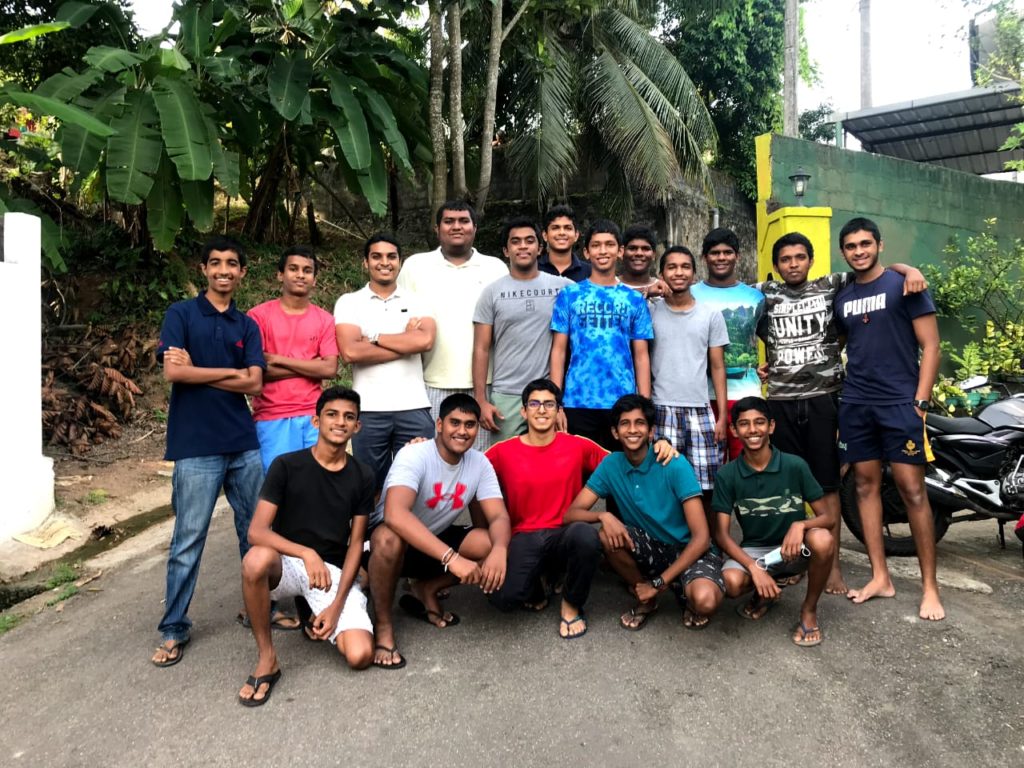Studied hard, but didn’t get enough marks? It’s a common thing which you hear after results being released. The problem is that all the effort and hard work you’ve been putting in for years will have to be showcased within 2 to 3 hours in the exam. So, it is extremely necessary to focus on understanding the nature of the exam papers. It is highly necessary to analyze the papers and work on it to be able to do well during that short time. For that,the best thing you could do is to do past papers after self-studying.
When you start doing papers for practice it is very normal to get the majority of your answers wrong. So don’t worry! Regular practice will improve your answering capabilities. Doing past papers is not just doing it and counting your marks. That will only help you to judge yourself. So, what should you do?
1) Analyze the paper
You should analyze the paper well. Most of the questions and question patterns get repeated in almost all types of exams, from grade 6 term tests to O/Ls and A/Ls. According to Prof. S.R.D. Rosa, who has experience in making A/L physics paper for more than a decade, the 2009 physics multiple choice question paper has had only 11 questions with new concepts, which means the rest of the 49 questions could be done with the concepts used in papers of previous years. Identify those common questions, patterns and common areas that the examiners used to ask questions. It’ll be really helpful to face exams. It is highly recommended to use the original marking scheme to check the paper. Then not only you’ll be able to correct your mistakes, but also will be able to identify on wordings, specific terms to be used when answering questions. You should understand that you won’t be the one’s marking your own paper. You should use specific keywords and the correct wordings (better to practice the answer patterns in marking schemes), to ignore the slightest risk of losing marks. Always try to be on the safe side.
2) What to do when you get wrong answers?
Find the reason for getting it wrong. There may be several reasons such as not reading questions and instructions properly, a problem with the angle you looked at the question, being unable to understand the question properly, not knowing how to apply theory properly to the question or also, it could be a simple math error. After identifying the reason, concentrate more on improving those areas where you fail mostly at. For example, you could practice more sums if you make more math errors. If you have no idea even after referring to the marking scheme, the best thing you could do is to meet the teacher or a friend as soon as possible and clarify it. Never ever postpone that due to any reason. Don’t be shy to ask a thing which you don’t know. You might forget if you postpone and will have to suffer when such a question appears in your real exam. Next thing advisable to do is to go through your notes and constantly add if you find new things from papers so that you can revise those when you go through the notes again.
3) Focus on important areas
As time is a limited factor for you, concentrate more on important areas. Find the lessons that the examiners are very keen to ask questions based on. Focus more on those areas. Also, focus on areas based on the structure of the paper. For example, the A/level physics or chemistry paper consist of 50 multiple choice questions each carrying 1 mark out of 100 marks. However, since the 2nd paper comprises of 1000 marks which is divided to get 50, each mark carries as little as 0.05 to your final score. So, it is recommended to focus more on those sections. Marks, marks and marks! I hope just like me, all you seek for marks in an exam. So, you should definitely have an idea of how marks are divided for questions. You have to go through answer schemes to find the marks allocated and the types of answers they expect for different questions (for example number of statements required and the key terms).
4) Timing
Next biggest obstacle that you’re likely to face is timing. No point knowing everything if you can’t apply that within the time allocated. So, you have to know the format of the paper well. Identify the format and divide your time ideally according to the question types. When you’re doing past paper questions try to finish within that time limit. The best thing to improve timing is practice. When you’re familiar with question types and know the method, you will be able to finish those soon. Getting used to the exam conditions is another way to perform well in the exam. Once you’re done with the syllabus or majority of the syllabus, so that you can answer full papers, start doing papers with timing. At the beginning, you won’t be able to finish on time. Improve day by day. Try to increase the number of questions you do during that time. This doesn’t mean that you have to leave the other questions undone. Do those as well after the time, but see your timing and try to improve day by day.
Then comes the day!!!
After all the hard work and dedication, the days for the exams will come much sooner than you expect. It will be all about how you apply your knowledge and practice that you’ve been gaining for years. For that, you should have a good mindset. No matter how little you have studied, you should have at least 6 hours of sleep on the day before the exam. This will make you feel really fresh and free-minded on the day of the exam. Sportsmen know how inconvenient it is to use different sports equipment than what they’re used to. Just like that the logic of ‘nothing new’ applies to exams as well. Go with the momentum that you’ve been going with. No matter how others try to convince you, never change the methods you are used to, on the last few days. On the day of the exam, go a little bit early to the exam hall to get used to the hall and the exam conditions. Be relaxed, get used to the setting.
Once you sit down and get the paper, don’t expect 100%. You must set your mind to leave questions if you don’t know the answer. This is really important as past experiences of students reveal that so many students have wasted their time hanging on the same question. Another very important thing is to read the instructions and questions properly. Many students lose their marks due to not reading the questions properly. Sometimes valuable information which will ease you will also be among the instructions. Not only that, reading the whole paper will help you to select the questions which you can score more (better if you can mark the questions that you know). Answering easy questions at first will boost your confidence and also will provide an overview of the test. Another mistake done by students is, they skip questions if they don’t know the answers. Why don’t you try your luck? You will not lose anything, but luck might add you more marks. Especially with MCQs. Use methods such as elimination of answers to increase the probability of getting it right. Try to get every single mark that you can.
Work hard, work smart, get used to the paper before the exam, analyze the question patterns, practice answering questions and face the exam with a good mindset and with great concentration. You will definitely be able to get really good results.
By Nimesh Ranchagoda
Nimesh Ranchagoda is a Prefect, who obtained 3As for A/Ls in Mathematics in 2019 and 9As for O/Ls in 2016. He was also the captain of the College Table Tennis team in 2018, and peaked at the 3rd place in the National Open rankings, with multiple international representations under his belt, while still in school. He is an example of how one can balance extracurricular commitments with academics

